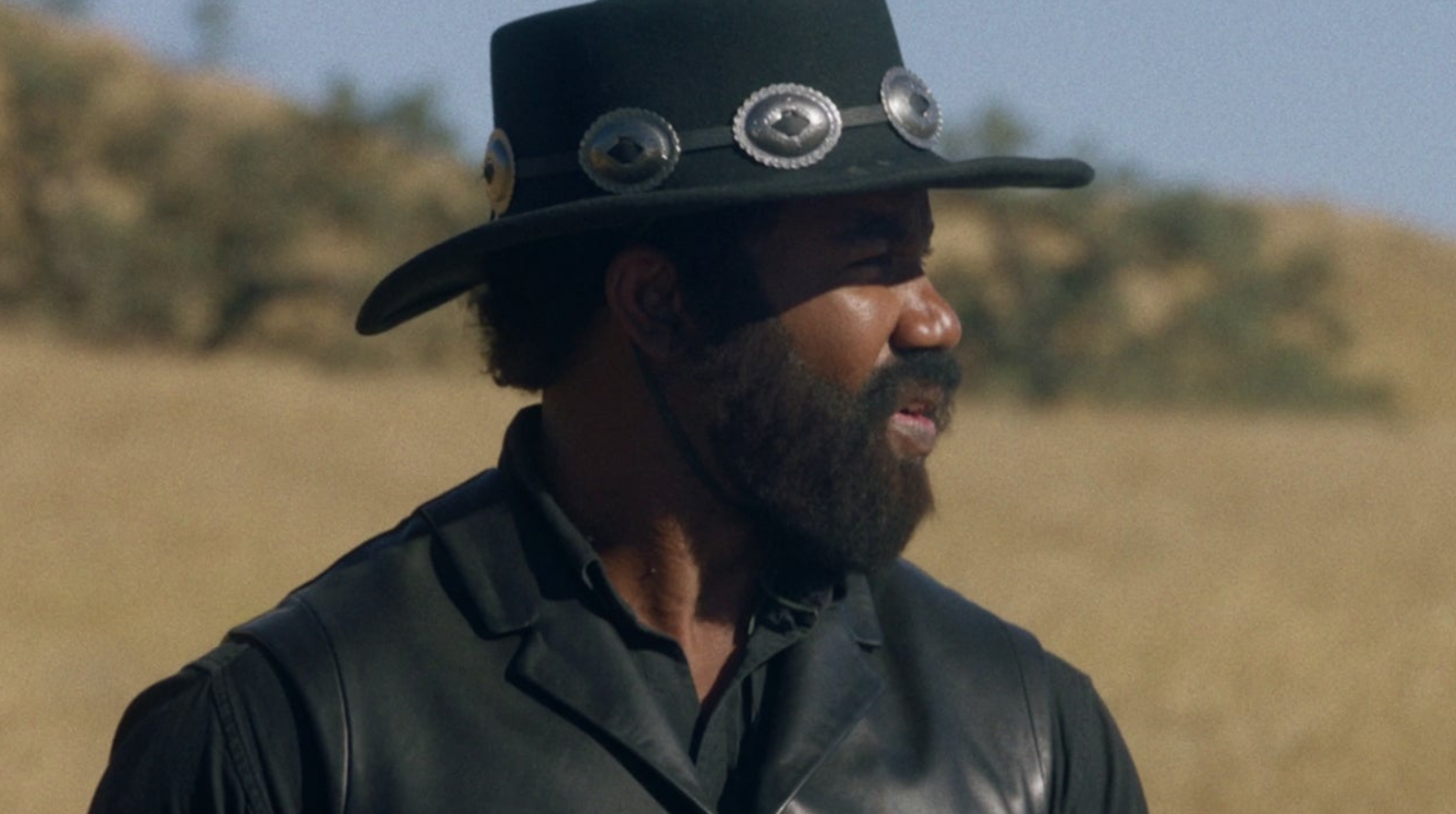Michael Jai White returns to the director’s chair and the big screen in Outlaw Johnny Black, a film that feels like a love letter to 1960s Spaghetti Westerns and 1970s Blaxploitation flicks. Co-written and co-starring Byron Keith Minns, the movie is a lengthy affair at 136 minutes and could be described as a bit of an endurance test for the casual viewer.
Although it lacks the brisk wit and agile pacing of White’s 2009 cult classic, Black Dynamite, the new film does deliver its share of chuckles. While it reverentially tip-toes around some Western clichés, it also succeeds in casting a talented ensemble committed to the film’s blend of humor and earnestness.
While Outlaw Johnny Black might not be for everyone, it has enough moments to make it a worthwhile watch for those who have a soft spot for the genres it pays homage to.
In Outlaw Johnny Black, Michael Jai White dons the hat of a vengeful gunslinger and skilled martial artist on a relentless quest to avenge his father, Bullseye Black—a role briefly but memorably portrayed by Glynn Turman in flashbacks.
Echoing Lee Van Cleef’s character in For a Few Dollars More, Johnny keeps a photo of his late father in his pocket watch as a constant motivator for his revenge mission, along with a bullet inscribed with the name of his target, gang leader Brett Clayton, played by Chris Browning.
However, Johnny’s journey of vengeance is anything but smooth. From bounty hunters to law enforcement, numerous obstacles keep derailing his plans. A narrow escape from the gallows comes courtesy of Native Americans he had previously rescued, but that’s not the end of his troubles. Just when he seems lost in the wilderness, a helping hand arrives in the form of Reverend Percy, played by co-writer Byron Keith Minns.
The Reverend is en route to a new job and engagement in the primarily Black town of Hope Springs. When circumstances cause the Reverend to detour, Johnny seizes the opportunity to assume his identity, taking temporary sanctuary in a community blissfully unaware of who he really is.
With an intricate storyline, Outlaw Johnny Black weaves humor, action, and social commentary into a film that, despite its length, keeps genre enthusiasts hooked till the end.
Despite its marathon runtime of 136 minutes, Outlaw Johnny Black has moments that leave audiences craving more comedic punch. The film tips its hat to classics like Blazing Saddles, especially in scenes where Johnny blends in with his unsuspecting congregation, and even includes a cheeky nod to the infamous horse-punching scene from the Mel Brooks comedy.
However, the film opts for a somewhat surprising sincerity, filling the gaps between jokes with a serious subplot centered around a greedy landowner, played by Barry Bostwick. This villain has his eyes set on the oil-rich lands belonging to Bessie’s sister, Jessie, portrayed by Anika Noni Rose.
In an odd twist of cinematic timing, Outlaw Johnny Black shares thematic territory with the upcoming Killers of the Flower Moon, another movie dealing with the exploitation of people of color for oil wealth. Yet, while sometimes lacking in non-stop laughs, the film offers a multi-layered narrative that attempts to balance humor, action, and a dose of earnest social commentary.
In Outlaw Johnny Brown, the audacious humor is as bold as its storytelling, taking jabs at racial stereotypes with an eyebrow-raising frankness. Johnny Brown is accused of crimes like train robbery and “improper eye contact with white women,” satirizing society’s deeply entrenched racial biases.
The film also addresses rumors about Black men being violent toward white women, cautioning against vigilante justice. Subtly mocking Hollywood’s history of whitewashing, the film employs conspicuously Caucasian actors to play Native Americans.
But it’s the ending that seals the deal—two legends of the Blaxploitation Western genre make surprise appearances to symbolically hand over the reins to the new generation. While it may not induce roaring laughter, it’s sure to leave you smiling, acknowledging the film’s clever blend of humor and poignant social commentary.

